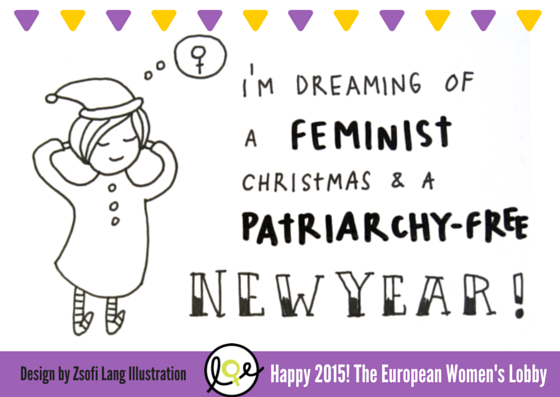[Brussels, 17 July 2012] Commission Vice-President Catherine Ashton this week took a stance against quotas, in a move which could undermine recent efforts of the European Commission to increase women’s representation on boards.
In reply to a written parliamentary question, Catherine Ashton, High Representative for the Foreign Affairs and Security Policy as well as Vice-President of the Commission, declared that she would not apply quotas to the EU’s External Action Service (EEAS). This stance reflects the internal contradictions of the European Commission, four months after Viviane Reding, her fellow Vice-President and Commissioner responsible for justice, fundamental rights and citizenship, asked Member States to ensure a 30% representation of women on boards by 2015, and 40% by 2020, explicitly defending the use of quotas (see interview in The Guardian newspaper here).
Ms. Ashton declared that she was against the use of quotas on the basis that “the basic principle of EEAS selection procedure is merit.” She was quickly backed up in this assertion by London Conservative MEP Ms. Yannakoudakis who welcomed Ashton’s reaction on her website: “I am pleased that there are more women in high positions in the EU external Action Service. Women are just as capable as men, and quotas actually serve to undermine gender equality.”
In fact however, the presence of women in high positions has little to do with merit. If that were the case, women would not be under-represented. Indeed, as Viviane Reding herself highlighted in an interview for Vieuws in June, women in the EU represent 60% of university graduates. In addition, a large body of research has shown that women by their inclusion have the merit of contributing to better results: companies with diverse boards were more efficient than companies with all-male boards. As Ms. Reding said: “women mean business, women do not mean costs”. She once again defended the use of quotas which are not meant to favor women, but simply to “give (them) a chance”, given the inequalities that they are facing when they compete with men for top posts.
The reasons why women do not reach top posts are multiple and complex, but lack of merit is most certainly not one of them. Despite legal requirements to respect and promote equality between women and men and a variety of initiatives in the public and private sphere to increase the representation of women in decision-making, women currently account for only 33% of Commissioners, less than 35% of MEPs and 26% of national Senior Ministers on average [[http://ec.europa.eu/justice/gender-equality/gender-decision-making/database/index_en.htm]]. The same segregation is visible in the private sector, with only 12% of women on EU company boards [[European Commission working paper, The gender Balance in Business Leadership, 2011:
http://register.consilium.europa.eu/pdf/en/11/st07/st07231.en11.pdf]].
Progress has also been dismally slow (the Commission estimates that it will take 50 years to reach parity on company boards at the current rate), and it is this along with the apparent lack of commitment of private companies to ensure change without regulation that brought about Commissioner Reding’s initiative. The EWL strongly supports this initiative for quotas on both executive and supervisory boards of administration. The experience of Norway and of other countries which have introduced quotas in the public and/or private sphere shows how the legal measure is crucial to bring about the change of paradigm and comprehensive approach crucial to ensuring women’s merit is recognised and nurtured. The EWL also released in February 2012 a report assessing the current situation and progress in ten European countries to increase women’s representation in decision-making and issued a series of recommendations for Member States. The results of this analysis were optimistic, showing that decisive intervention does make a difference in increasing women’s representation in decision-making.
The promotion of equality between women and men is a fundamental value and objective of the EU. In addition, the equal representation of women and men in decision-making is a pre-requisite for democracy and justice. Ms Ashton has a legal and moral duty to back Ms. Reding in her endeavours to pave the way for women in top jobs.


